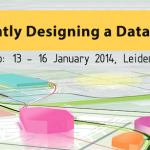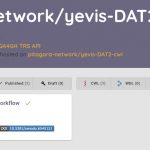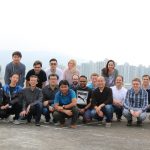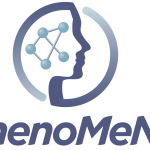Tag Archives: workflows
A Decade of FAIR – and what next? Q&A on FAIR workflows with the Netherlands X-omics Initiative
Scott Edmunds - January 14, 2024

Marking the 10th anniversary of the formulation of the FAIR principles, we have one of our GigaBlog Q&A’s with Peter-Bram ‘t Hoen, Alain van Gool, Anna Niehues and Casper de Visser from the Netherlands X-omics Initiative and Radboud University Medical Center in Nijmegen, authors of a new paper on publishing FAIR workflows. Giving us their […]
Addressing the challenges of sharing computational workflows with Yevis. Q&A with Tazro Ohta.
Scott Edmunds - March 6, 2023

We have an author Q&A and video abstract with Tazro Ohta where he gives some insight into archiving workflows and his new Yevis platform.
Reproducible Classification. Q&A on ShinyLearner & the CODECHECK certificate, pt. 2
Scott Edmunds - April 8, 2020

Q&A with Stephen Piccolo talking about ShinyLearner, a benchmarking tool for machine-learning classification algorithms, & how it was tested with CODECHECK
GigaBlog meets Gigantum: Guest Post from Tyler Whitehouse, Dean Kleissas and Dav Clark
Nicole Nogoy - June 20, 2019

At GigaScience as our focus is on reproducibility rather than subjective impact, it can be challenging at times to judge this in our papers. Targeting the “bleeding edge” of data-driven research, more and more of our papers utilise technologies, such as Jupyter notebooks, Virtual Machines, and Containers such as Docker. Working these tools in to […]
CUDDELing up to metabolomics in Hong Kong
Peter Li - January 22, 2018

A highlight of 2017 was a 2nd GigaScience hackathon in ourHK office from a metabolomics project called CUDDEL, all thanks to BBSRC China Partnering Award
Guest posting: Conda as a new standard for Galaxy tool dependencies
Scott Edmunds - September 20, 2016

The Galaxy community is one that shares similar reproducibility goals with GigaScience, having a computational platform that allows users to share workflows, histories and wrapped computational tools in an easy-to-use and open source interface. Björn Grüning and The Intergalactic Utilities Commission of Galaxy have a guest posting here to announce new changes that will make development and presentation of tools and pipelines through Galaxy even more reproducible and usable.
Guest posting: Building a PhenoMeNal metabolomics e-infrastructure
Scott Edmunds - July 19, 2016

David Johnson and the PhenoMeNal consortium have a guest posting on their efforts in building an open, community-supported, e-infrastructure for medical metabolomics data, and how they are seeking community feedback on the requirements for the data infrastructures needed.
Open bioinformatics in the house of the mouse.
Scott Edmunds - July 10, 2016

The 2016 Bioinformatics Open Source Conference has just finished here at Disney World Orlando, and here is the write up of the meeting, with discussion on the merits of open bioinformatics and closed cartoons.
Of Parasites & Protocols, Part 3. Author Q&A with Tony Papenfuss
Scott Edmunds - June 16, 2016

Following our announcement this month of a new collaboration and integration with protocols.io, we’ve gone into more detail on the first two papers that have utilised this open access repository of scientific methods and collaborative protocol-centered platform. To give some insight into his work, we have one of our author Q&As with Associate Professor Tony Papenfuss, lead author of our scabies genome paper.
Reproducible Research Resources for Research(ing) Parasites
Scott Edmunds - June 3, 2016

Two new research papers on scabies and tapeworms published today showcase a new collaboration with protocols.io. This demonstrates a new way to share scientific methods that allows scientists to better repeat and build upon these complicated studies on difficult-to-study parasites. It also highlights a new means of writing all research papers with citable methods that can be updated over time.